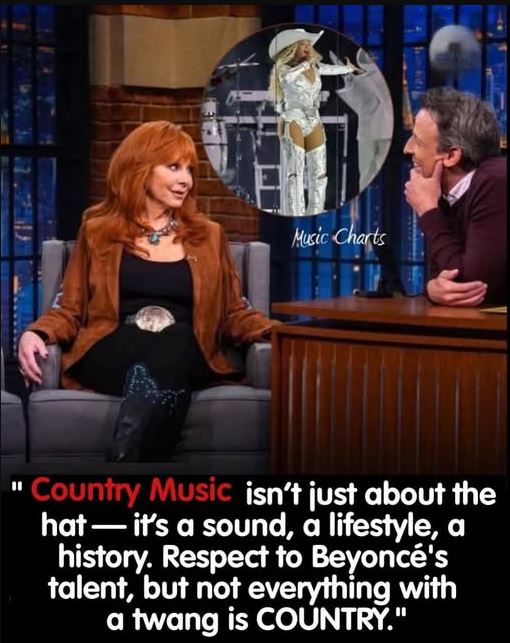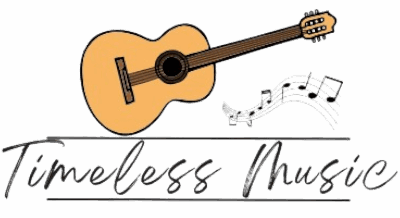
Country music has always been more than just a genre — it’s a lifestyle, a tradition, and a storytelling medium that connects listeners across generations. While the world often associates it with cowboy hats, glittery boots, and Nashville’s neon lights, true country music is rooted in authenticity, emotion, and lived experience. Recently, legendary singer Reba McEntire took to a late-night talk show to share her perspective on what defines real country music in today’s ever-evolving musical landscape. Her words have reignited an important conversation among fans, artists, and music critics alike.
The Heart of Country Music
For decades, country music has told stories of life, love, hardship, and hope. From the tear-stained ballads of Hank Williams to the empowering anthems of Dolly Parton, country music is grounded in the idea that a song should tell a story and evoke genuine emotion. Reba McEntire, herself an icon in the genre for over four decades, emphasized that country music is about the heart, not just the appearance or the sound.
In her recent interview, Reba made it clear that while contemporary artists may adopt country-inspired visuals or experiment with a twang in their voice, this alone does not make a song authentically country. Country music is defined by the stories it tells — stories of everyday people, struggles, joys, heartbreaks, and triumphs. It’s a reflection of real life, a connection between the artist and the listener that goes beyond trends or fashion.
Pop Influences and the Modern Country Debate
Reba’s comments came at a time when the lines between country and other genres are increasingly blurred. Pop stars like Beyoncé have wowed audiences with Western-inspired performances and country-themed aesthetics, bringing new energy and attention to the genre. While these performances are visually striking and creatively ambitious, Reba reminded fans that a costume, a stage prop, or a twangy vocal delivery doesn’t capture the essence of country music.
This perspective has sparked lively discussions across social media platforms. Fans debate: can a pop artist ever truly perform country music? Is country defined by instrumentation, vocal style, or lyrical content? Reba’s insights encourage a deeper understanding of the genre, urging listeners to respect the roots while appreciating innovation.
The Importance of Storytelling
At the core of Reba’s message is storytelling. Country music is a narrative art form, where lyrics matter as much as melody. A song about heartbreak, perseverance, or family traditions resonates because it reflects real experiences that listeners can relate to. This emphasis on storytelling is what distinguishes country from other genres that may prioritize rhythm, production, or commercial appeal over narrative depth.
Reba’s own career exemplifies this principle. Hits like “Fancy”, “The Night the Lights Went Out in Georgia”, and “Does He Love You” are memorable not just for their catchy melodies but for their powerful stories. Each song invites listeners into a world of emotion and experience, illustrating why Reba’s advocacy for authenticity carries so much weight in the country community.
Honoring Country Music’s Heritage
Another key point in Reba’s discussion is the importance of honoring the genre’s heritage. Country music has deep roots in American history, tracing back to folk, blues, and Appalachian traditions. Over time, it has evolved, incorporating elements from pop, rock, and even hip-hop. However, the genre’s identity remains tied to its origins — storytelling, simplicity, and relatability.
Reba encourages both fans and new artists to appreciate this history. Understanding the heritage of country music — its legends, its struggles, and its triumphs — is essential for anyone claiming to participate in the genre. While experimentation and crossover are welcomed, the heart of country must never be forgotten.
Bridging Generations Through Music
One of the reasons Reba McEntire’s words resonate so strongly is her ability to bridge generations. She appeals to older fans who grew up with traditional country sounds, as well as younger audiences discovering the genre for the first time. By emphasizing authenticity, Reba reminds all listeners that country music is not a trend — it’s a cultural narrative that spans decades.
Her comments also highlight the role of mentorship and guidance within the country music community. Established artists like Reba serve as gatekeepers and storytellers, ensuring that the genre remains true to its roots while embracing new influences. This balance between tradition and evolution is what keeps country music alive and relevant for future generations.
The Conversation Online
Following her appearance, Reba’s statements sparked a vibrant online discussion. Fans praised her for speaking the truth, while some argued that country music must evolve with contemporary trends. This debate reflects a larger tension in the music industry: how to balance innovation with authenticity.
Many social media users shared personal stories of what country music means to them — from family gatherings around a guitar to road trips with the radio playing classic hits. These responses underscore Reba’s point: country music is defined by its emotional impact and ability to tell real stories, not by superficial markers.
Lessons for Fans and Artists
Whether you’re a lifelong fan of Nashville hits or a newcomer exploring the genre, Reba’s message offers important lessons:
- Value authenticity: Real country music comes from personal experience and emotional truth.
- Respect the roots: Appreciate the history and traditions that shaped the genre.
- Embrace storytelling: Focus on lyrics and narratives that resonate with listeners.
- Balance tradition and innovation: Modern influences are welcome, but they should honor the core of country music.
By following these principles, fans can deepen their appreciation for country music, while artists can create work that honors the genre’s legacy while still pushing creative boundaries.
Conclusion
Country music is more than a style or aesthetic — it’s a culture, a story, and a way of connecting people across generations. Reba McEntire’s reminder that real country music is rooted in authenticity, storytelling, and tradition resonates now more than ever. Her words encourage listeners to look beyond appearances, to listen with empathy, and to celebrate the genre’s rich heritage.
As the conversation continues, one thing is clear: country music’s heart will always belong to the storytellers who live it, feel it, and share it with the world. Whether through classic ballads or modern crossover hits, the essence of country music remains the same — real stories told with honesty, passion, and soul.
